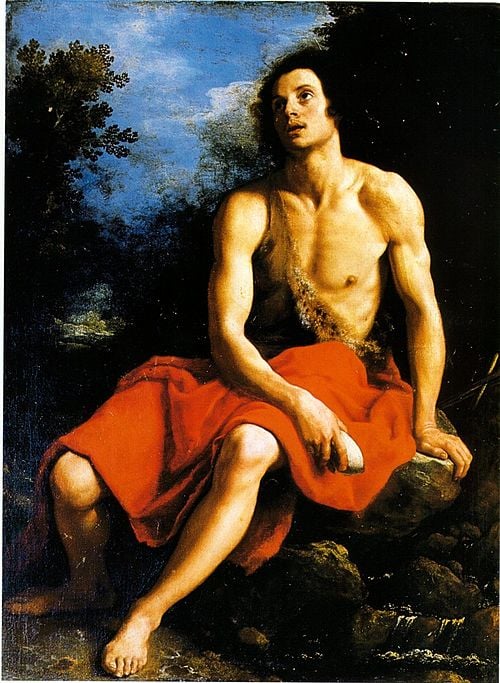
I cite The Latin Works of Huldreich Zwingli, Volume Three, edited by Clarence Nevin Heller, Philadelphia: The Heidelberg Press, 1929. I am specifically addressing Zwingli‘s work, Commentary on True and False Religion (1525; translated by Henry Preble), which William Walker Rockwell in his Preface describes as “The earliest truly comprehensive treatise on Protestant theology” and the first to present “the full-orbed Protestant faith. . . . Zwingli presents an original and . . . comprehensive plan of arrangement and, therefore, justifies the claim that among Protestant system-builders he is the pioneer” (p. iii).
This is a reply to his section 7, “The Gospel” (pp. 118-131). Zwingli’s words will be in blue. I use RSV for Bible citations.
*****
He sent forth His disciples with the injunction, Mark 16: 15: “Go ye into all the world, and preach the gospel to the whole creation. He that believeth and is baptized shall be saved; but he that believeth not shall be condemned.” Here we learn, first, that the gospel is a thing which saves the believer. (p. 118)
Indeed it is, but baptism also saves us (see 13 more passages proving that), as the passage says. Zwingli asserts one part of it and ignores the other.
Peter also teaches, 1 Pet. 3: 20-21, saying that we are washed in baptism in the same way in which the men of old were once purified by the flood. And, that we shall not understand here the baptism of water but the internal change of the old man through repentance, . . . (p. 121)
It’s pretty tough to take this view when Peter clearly says in the same passage, “Baptism, . . . now saves you” (1 Pet 3:21). Once again, Zwingli sees only what he wants to see (according to his prior theology and premise) and ignores what he doesn’t want to accept. This is eisegesis (reading external things into Scripture) rather than exegesis (taking out of Scripture what is really there). We can be quite sure that if Peter had written, “baptism does not save you” that would be trumpeted far and wide by Protestants (as well it should be, if indeed he had expressed that). But because Peter actually stated that baptism “saves you” it has to be ignored or explained away.
If this passage isn’t clear enough for Zwingli, we have St. Peter’s sermon on the Day of Pentecost: the first Christian sermon in the new covenant:
Acts 2:38-41 “And Peter said to them, ‘Repent, and be baptized every one of you in the name of Jesus Christ for the forgiveness of your sins; and you shall receive the gift of the Holy Spirit. For the promise is to you and to your children and to all that are far off, every one whom the Lord our God calls to him.’ And he testified with many other words and exhorted them, saying, ‘Save yourselves from this crooked generation.’ So those who received his word were baptized, and there were added that day about three thousand souls.”
Peter unquestionably taught the Catholic view of baptismal regeneration. Clear as day! Clear as pure water . . .
. . . the symbol of Baptism, . . . [there are] those who think that it wipes away sins . . . [they] speak what pleases themselves, not what the word of the Lord has taught. (p. 121)
Yes, of course we think it wipes away sins, because Holy Scripture says so fourteen times. If God inspired men to teach this in His Holy Word, that’s more than enough for us. Zwingli projects his eisegesis onto his opponents.
When, then, John [the Baptist] taught that man must review his life and change it, what hopes, pray, did he hold out? Did he ever teach, “By doing so and so ye will be saved”? By no means. (p. 121)
He did teach that, in asserting:
Matthew 3:8, 10 Bear fruit that befits repentance, . . . [10] Even now the axe is laid to the root of the trees; every tree therefore that does not bear good fruit is cut down and thrown into the fire. (identical in Lk 3:8-9)
No fruit (which mostly means good works) = no salvation, and hell as the alternative. In Luke, John goes on to provide several examples of what he means by these fruits / good works:
Luke 3:10-14 And the multitudes asked him, “What then shall we do?” [11] And he answered them, “He who has two coats, let him share with him who has none; and he who has food, let him do likewise.” [12] Tax collectors also came to be baptized, and said to him, “Teacher, what shall we do?” [13] And he said to them, “Collect no more than is appointed you.” [14] Soldiers also asked him, “And we, what shall we do?” And he said to them, “Rob no one by violence or by false accusation, and be content with your wages.”
Jesus directly ties good works to salvation (never mentioning faith) in the last judgment, described in Matthew 25. These are a few of the 100 refutations of “faith alone” in the Bible. But — true to form — Zwingli ignores all this that roundly refutes his false claim that John the Baptist supposedly never mentioned works in conjunction with salvation.
There isn’t much about John the Baptist in the Gospels. It’s very hard to overlook these passages. But when one is determined not to see what he doesn’t want to see (as Zwingli was), this is what we get. Heresy always begins with the sad adoption of many false and unbiblical premises.












